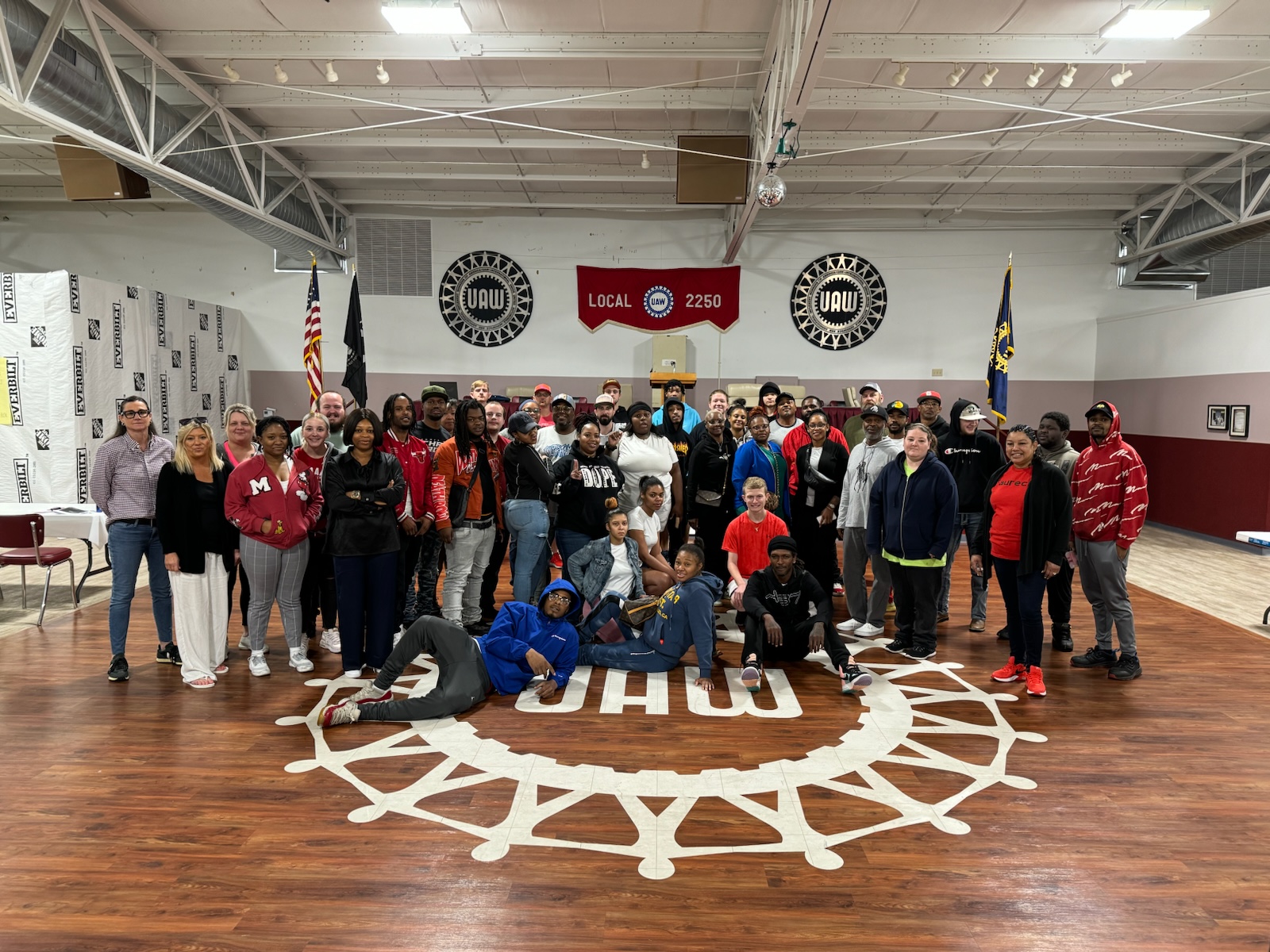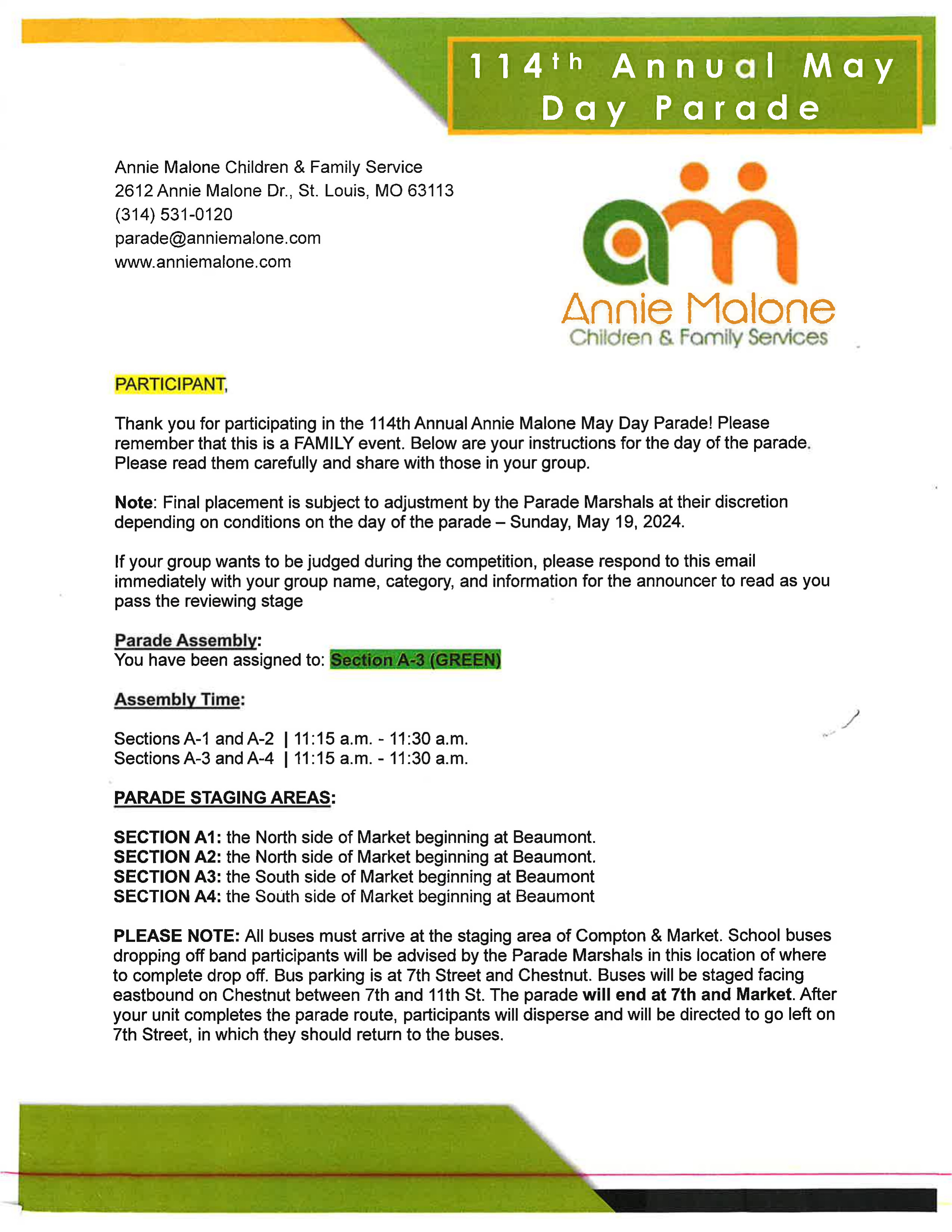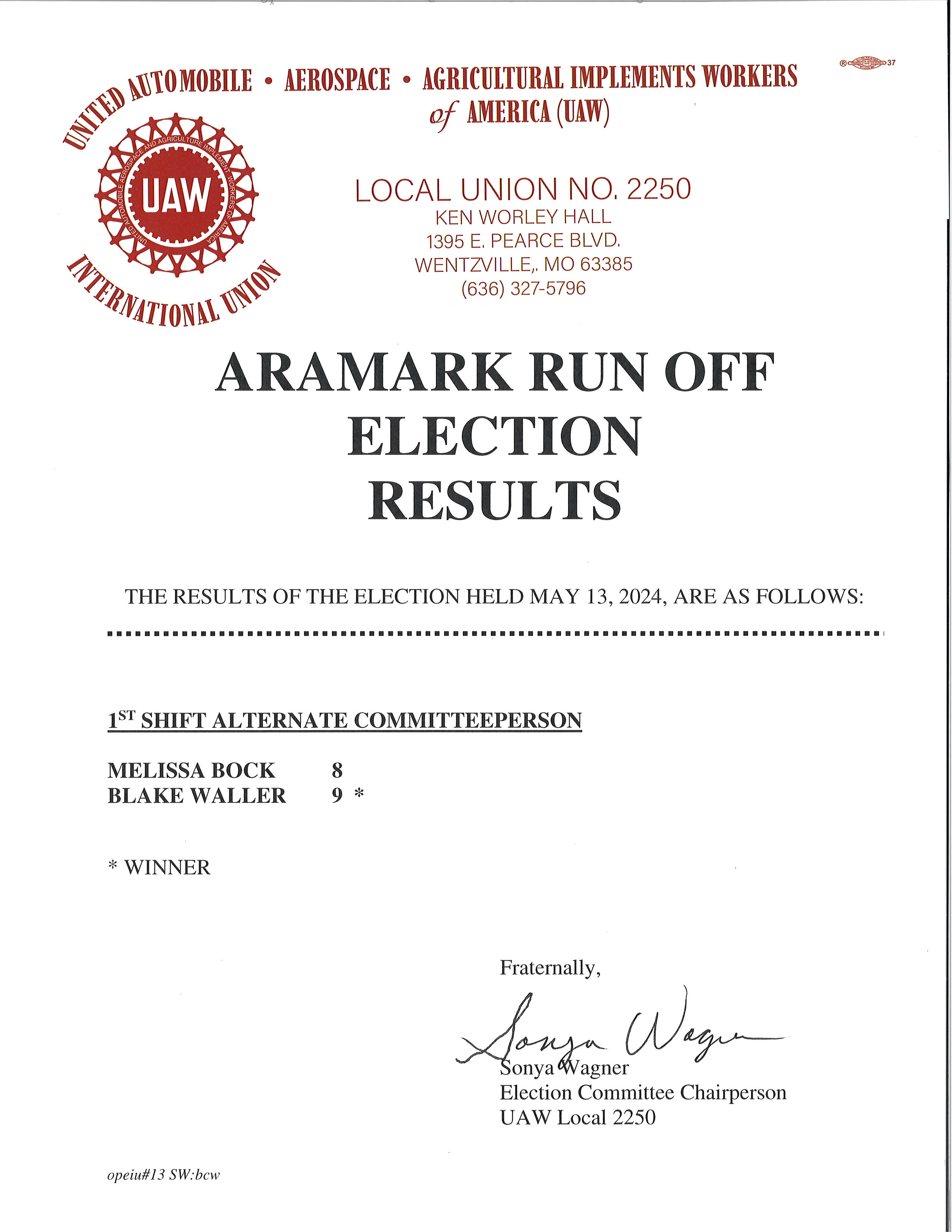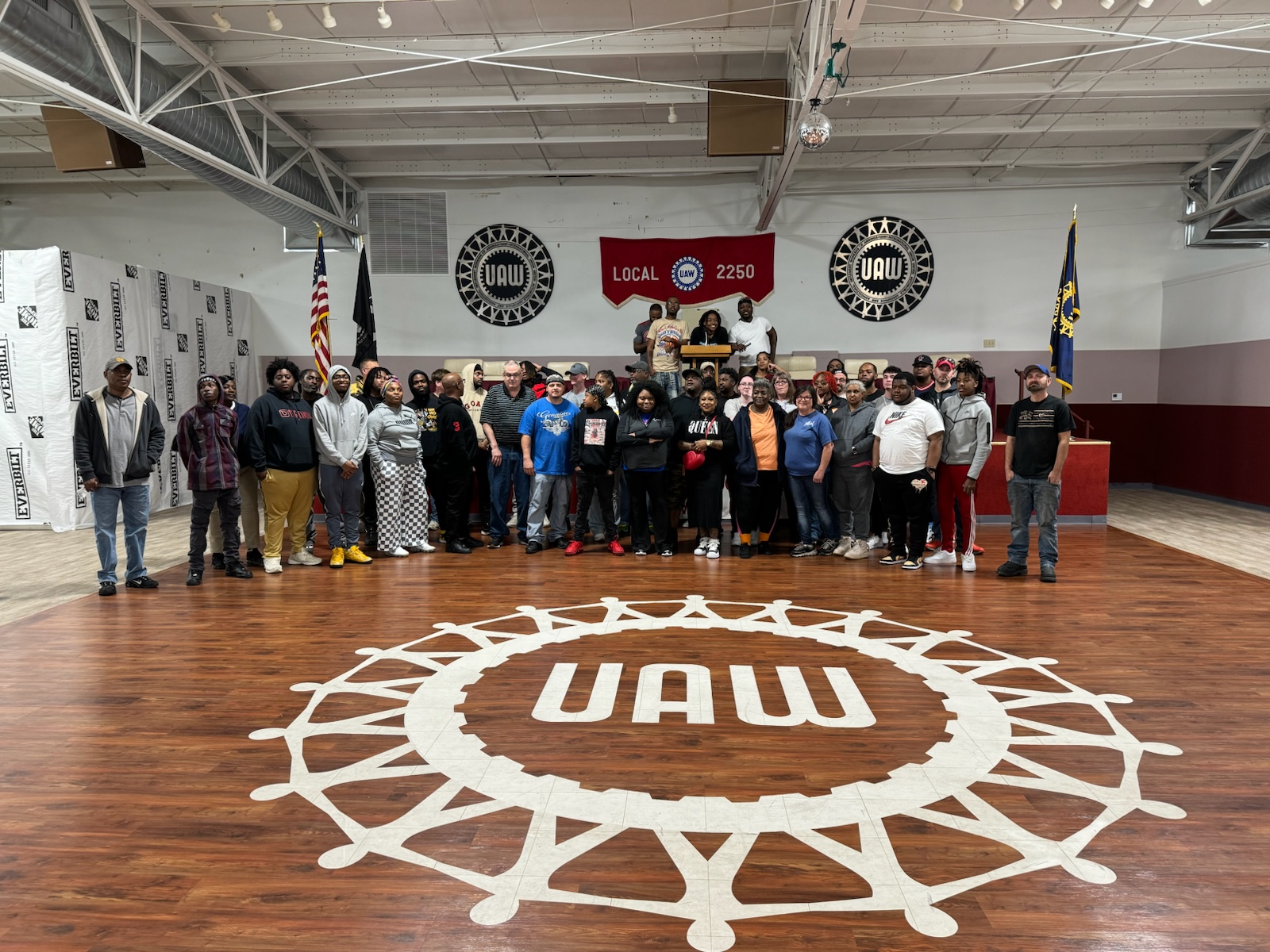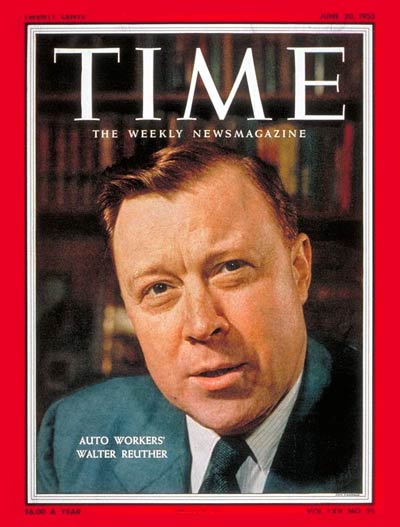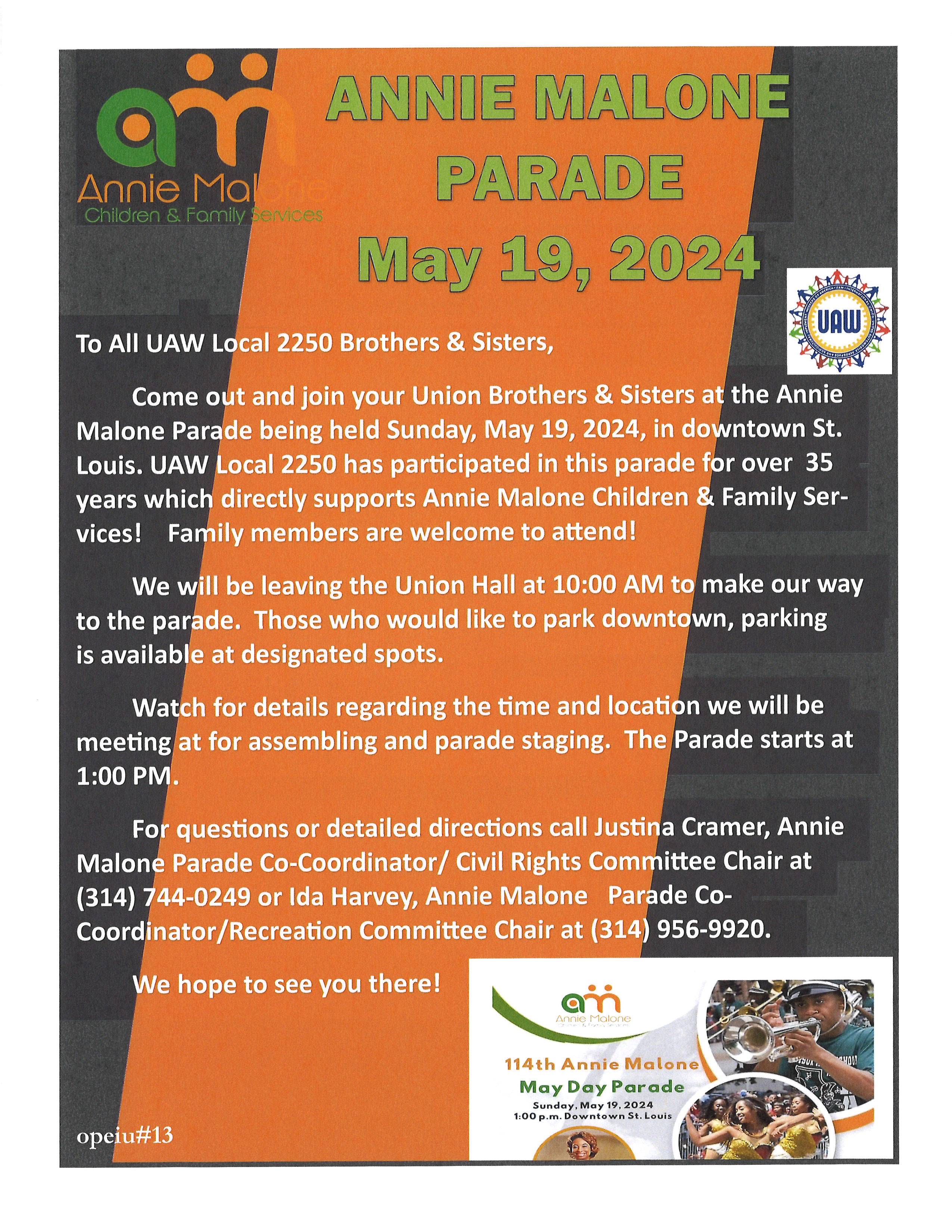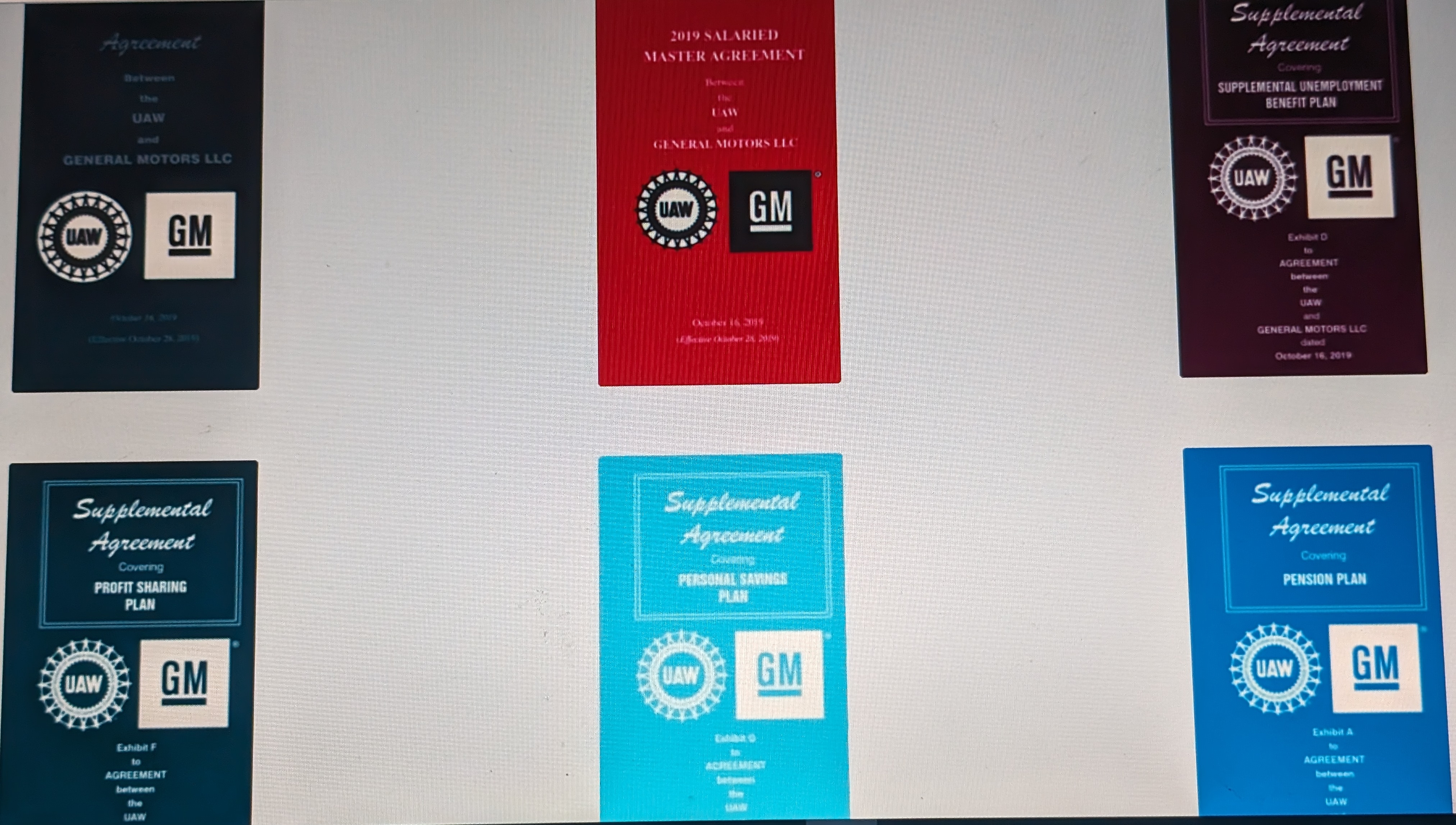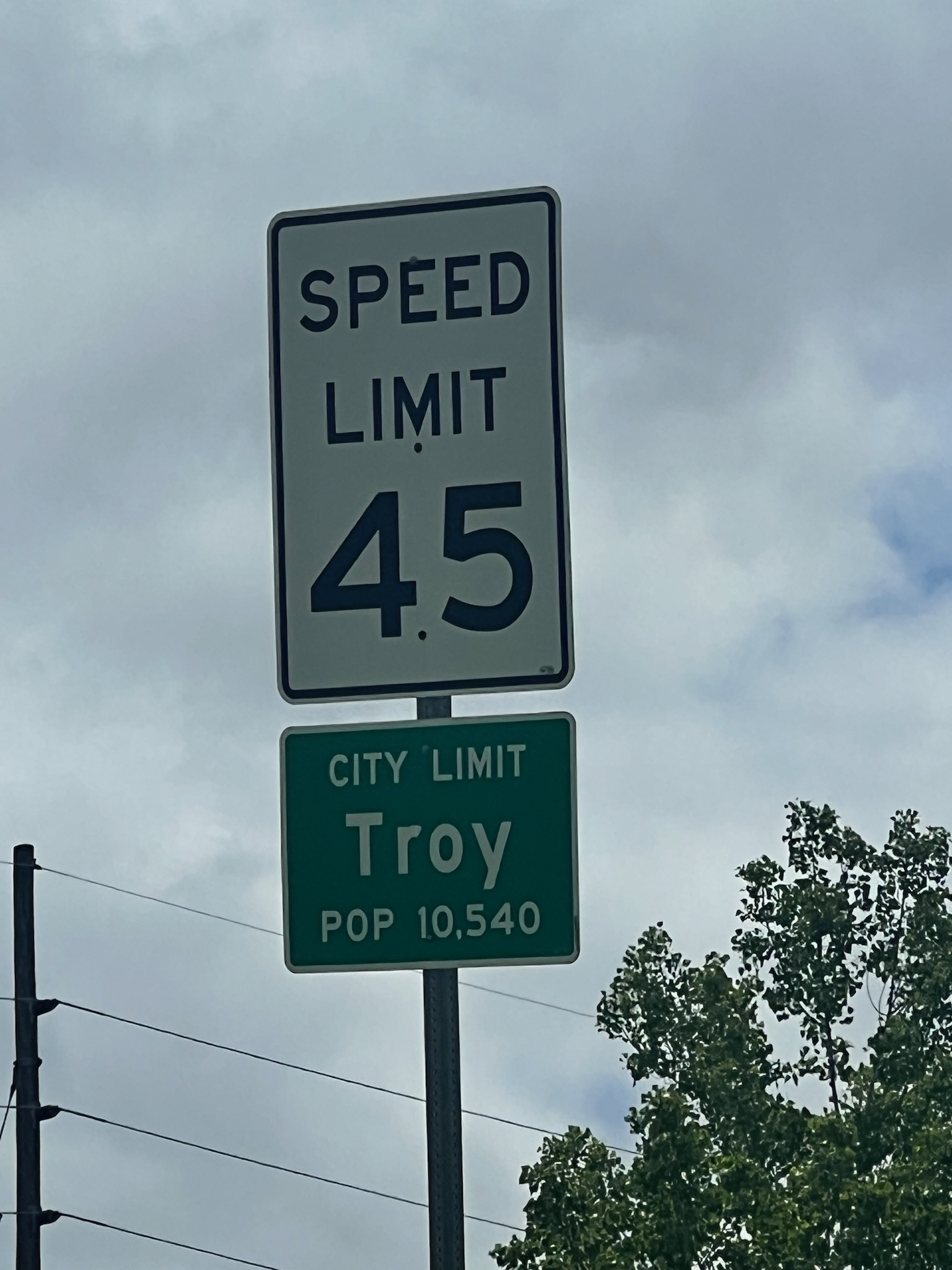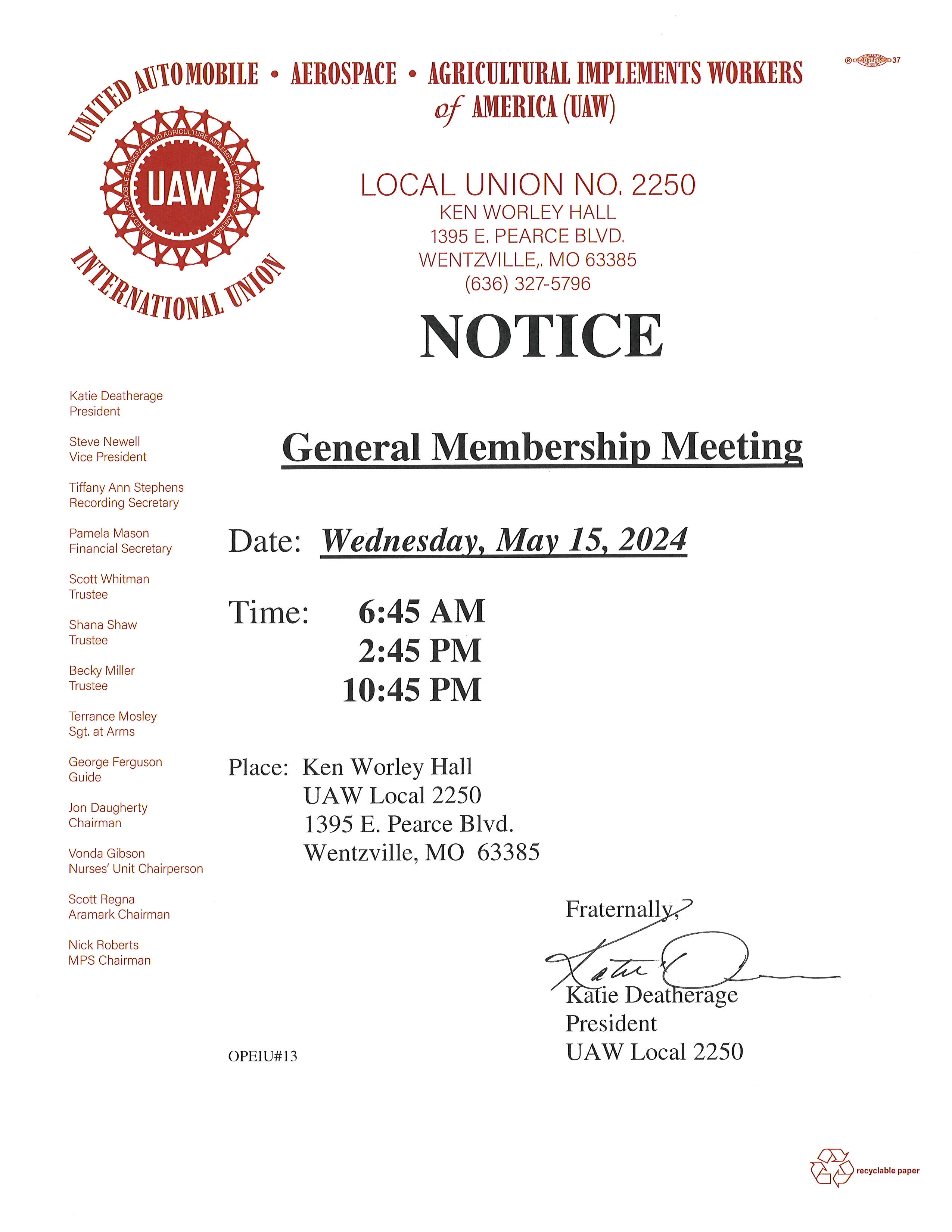-
Here Is Your Weekly Missouri Labor Report: Your Voice Preserved! - 9 hours ago
-
Welcome The May 16, 2024 Orientation Class - 13 hours ago
-
Sunday Stats: Union Members PAY Increasing Faster Than Nonunion Workers - 2 days ago
-
Going To The Annie Malone Parade? Read This. - May 16, 2024
-
Aramark Run-Off Results - May 14, 2024
-
Union Meeting Tomorrow! - May 14, 2024
-
Memorial Saturday: Is GM Destroying A Win-Win For Business, Labor and Government? - May 12, 2024
-
Welcome To The May 9th Orientation Class! - May 10, 2024
-
Why Are We Making Up Units From The Strike? We Can Change! - May 10, 2024
-
This UAW Legend Died 54 Years Ago Today - May 9, 2024
Why Are We Making Up Units From The Strike? We Can Change!
This article was originally posted on Febuary 23,2024. After yesterday’s announcement that the Saturday before Memorial Day will be mandatory it is more relevant than ever.
Who wants to make up units from a strike? I didn’t see many hands in the air like they just don’t care. Like all contractual terms, this can be changed. My latest article Let’s Get Our Leverage Back explains how…
Let’s Get Our Leverage Back!
Darin Gilley, UAW Local 2250
8 Consecutive Saturdays. 8 consecutive Saturdays is the current schedule for production at the GM Wentzville Assembly Center members represented by UAW Local 2250, one of the original “Stand-Up” strike locals. With all the talk of work/life balance how is this schedule not in violation of both the intent and the actual language concerning overtime scheduling?
The UAW/GM National Agreement contains language with overtime protections. Specifically, only two of every three Saturday’s can be scheduled for mandatory overtime. This is known as Plan A and is designed to protect members from being forced to sacrifice every weekend to earn a paycheck. However, the agreement also has related provisions that specify when protections from mandatory overtime can be suspended.
These provisions are contained in Article 12 of the Memorandum of Understanding on Overtime. Since the 2023 agreement is not printed yet, Article 12 can be found on page 218 of the 2019 contract book. A digital copy can be downloaded at www.uawlocal2250.net.
Article 12: Emergencies
The provisions of this Memorandum of Understanding that limit or restrict the right of management to require employees to work daily overtime or Saturday or Sundays shall be suspended in any plant whose operations are interrupted by emergency situations, such as single breakdowns of four hours or more, government mandated work, power shortages, STRIKE, fire, tornado, flood, or Acts of God for a period of time necessary to overcome such emergencies.
One of those emergency situations is not like the others. Yes, I wrote it in all CAPS. It is very hard to describe a STRIKE as an emergency or an Act of God. Oxford Languages defines an emergency as “a serious, unexpected, and often dangerous situation requiring immediate action.” Considering each agreement has an expiration date and the parties inform each other months in advance of their intent to bargain a new agreement and have even been known to shake hands to begin negotiations, unexpected does not apply to this situation.
In contract law, an Act of God is defined by Cornell Law School as “a severe, unanticipated, natural event for which no human is responsible. Considering that both parties are aware a strike is a possibility and is entirely a man-made, not a natural event, a strike does not meet the definition for an Act of God.
A strike is neither an emergency nor an Act of God so that begs the question “Why are we making up units lost to a strike”? Negotiations are an effort by at least two parties to reach an agreement. The company in this case has a key role to play. They can be negligent, by avoiding or delaying bargaining, and be the primary reason for a work stoppage. Should the workers be expected to sacrifice by being forced to make up units lost due to the company not fulfilling their obligation to bargain? If the company is an active, involved participant in negotiations but an agreement can’t be reached by the deadline it seems fair that both the union and the company bear responsibility. By allowing the company to mandate overtime to make up lost units the workers are forced to pay an outsized price for the failure to come to agreement.
When a strike occurs, workers experience a significant reduction in income. Allowing the company to mandate overtime to make up units lost during a strike paves the way for them to avoid any loss of revenue. As a union, we should focus on improving the lives of our members – before and after a strike. The practical effect of the current language is to reduce our leverage while negotiating an agreement and reducing the quality of life for members after the strike. Change is good. We can improve our leverage during negotiations and maintain the quality of life for members by removing STRIKE from the Emergencies provisions of the MOU on Overtime. Below is my proposed resolution to remedy this harmful contract language.
Proposed Resolution for The Next UAW/GM Negotiations
National Agreement
MOU on Overtime
Article 12, Page 218 of the 2019 Agreement – Emergencies
Whereas: Excessive overtime is detrimental to the well-being of members and efficient operations. The company and the union have committed to this fact in Document 108 – Work/Family Program and Document 116 – Overtime. Doc. 116 stated “essential overtime would be used in cases of temporary or seasonal increases in sales, at new model start-up, and to make up for production lost due to factors beyond the parties’ control such as interruptions in the supply of parts”.
By definition, a strike is a dispute between employer and employees. As such, this action is not beyond the parties’ control. Since the employer has a direct say in whether a strike occurs it bears responsibility for these lost units. By allowing these units to be made up on mandatory overtime the employer is relieved of responsibility while the entire burden is placed on the workers upon their return. This defies the concept of “beyond the parties’ control.”
Therefore: We demand that “strikes” be removed from Article 12 (Emergencies) of the MOU on Overtime.
If members have suggestions to improve this resolution or to propose other contractual language that improves the work/life balance of members write them down and keep them around. Resolution season will be here soon! Change happens when we make it happen.
(graphic via adobe stock)


